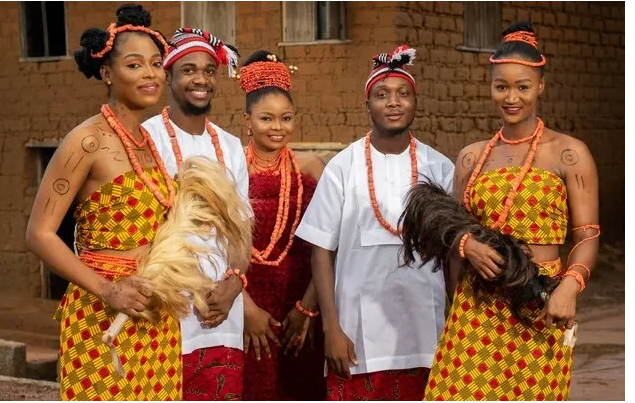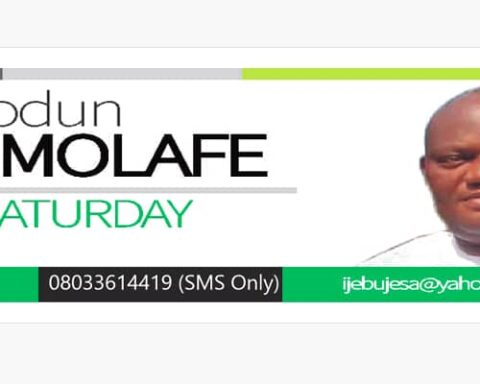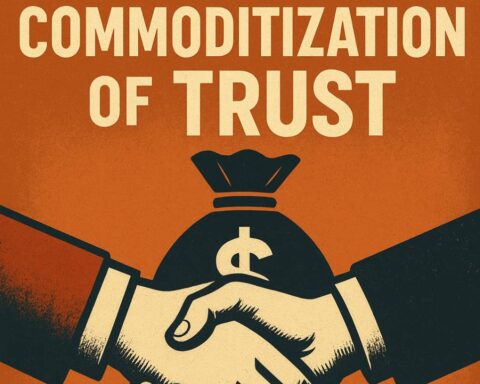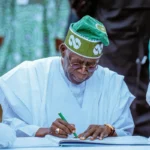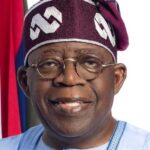When Labour Party’s Peter Obi won in Lagos during the 2023 presidential election, he received votes from across all Nigerian ethnic, religious and ideological groups. This was not a surprise since Obi ran a truly impressive campaign and Lagos is one of Nigeria’s most enlightened demographics. But that result inadvertently opened an old wound. Obi’s victory, in Tinubu’s political stronghold, was more than a political upset — it was a public humiliation. Determined to reclaim ground, Tinubu’s allies reached for an old weapon: ethnic politics.
They amplified fears of “Igbo domination,” planted inflammatory stories in the media, threatened violence and deployed thugs to physically intimidate voters in the gubernatorial elections that followed. Gbadebo Rhodes-Vivor, the Labour Party’s governorship candidate and a bonafide Lagosian with family pedigree, was branded “Igbo.” His sin: his maternal heritage and marriage to an Igbo woman. It was a cynical strategy — and it worked. Or so it seems.
Under the Tinubu presidency, anti-Igbo sentiment has hardened into an unofficial state policy. The timing of propaganda materials in the media is predictable: Whenever Obi (an Igbo) ramps up opposition rhetoric against Tinubu’s performance in office, the social media space in Nigeria goes agog with anti-Igbo messaging. It is either Igbos are accused of plotting to “take over Lagos” or they are alleged to have said that “Lagos is no man’s land.” Most recently, a 2013 incident was dredged up to suggest plans for an “Igbo village in Ghana.” The goal: To portray the Igbo as an obnoxious group wherever they go who cannot be trusted to produce the Nigerian president.
Not since the dark days of 1966–70 has any Nigerian ethnic group endured such systematic propaganda and profiling. But the truth is, Igbo phobia did not begin in 2023. Its roots run deep, reaching back to British colonial rule.
Colonial Resentment and Divide-and-Rule
From the late 19th century to the mid-20th century, the British found the Igbo to be among their most defiant colonial subjects. The Ekumeku guerrilla wars (1883–1914) which had its epicenter in present-day Anioma or Western Igbo areas, the Aro resistance (1891–1902), the Nri priesthood’s objections to colonial interference, the Aba Women’s Riot of 1929, and the Enugu coal miners’ strike of 1949 — all were acts of resistance led by Igbos.
To make matters worse, Nnamdi Azikiwe, an Igbo nationalist, was the first Nigerian to demand full independence from British rule. Zik went beyond the cautious calls of earlier nationalists for political representation and more job opportunities for educated Nigerians. His political party, the NCNC, became a formidable force, and his newspaper chain galvanized nationalist sentiment across Nigeria and West Africa.
The British took note of these developments in well-documented intelligence and administrative reports. From the 1930s onward, they began to deliberately sow distrust between Nigerian ethnic groups, warning others about the danger of “Igbo domination” in an attempt to curb the spread of Igbo resistance spirit and strengthen colonial rule.
The same tactic was used against the Yoruba, who were then the most educationally advanced group in Nigeria. In essence, both the Igbo and Yoruba were blacklisted by the British for their progressive inclinations. This was part of a global colonial strategy: play promising groups against each other and against other groups, so that while they squabble, colonialism endures. The application of this principle of “Divide and Rule “ in India by fostering Hindu–Muslim divisions eventually birthed Pakistan and, later, Bangladesh.
Blocking the Igbo Path to Leadership
The first major recorded attack on the Igbo during colonial times was the Jos Riots of October 1945. According to Wikipedia, the clashes began in a potato market dispute between Hausa-Fulani traders and Igbo traders—though other groups were also caught up in the violence. Just eight years later came the Kano Riots of May 1953, triggered by political tensions over independence. Chief Anthony Enahoro of the NCNC had moved a motion for independence on the floor of the Nigerian parliament. Northerners, mainly Hausa-Fulani, opposed independence, while Southerners, including Igbos and Yorubas, pushed for it. The four-day violence left many dead and wounded on both sides.
In both riots, the Igbo were singled out—even though they were not the only group at the receiving end. Their prominence likely stemmed from their numerical strength, visibility, and outspoken nature. In retrospect, it was also propaganda and ethnic profiling at work.
The colonial authorities soon unfolded plans to block Igbo political advancement. When Nnamdi Azikiwe’s NCNC looked set for victory in the independence elections, the British threatened to investigate the finances of the African Continental Bank, forcing Azikiwe into accepting a ceremonial presidency while real power went to the Prime Minister.
A recent confessional video by Harold Smith, a former colonial officer who served in Nigeria at the time, details how this was done. The video which went viral is still available on YouTube.
But even before the 1959 elections, the game was rigged. The Middle Belt was absorbed into the North, and constituency boundaries were drawn to guarantee Northern dominance. Although the NCNC won the largest share of votes (34%), and the AG came second (26%), it was the NPC—third in votes with 25%—that formed the government. Under Britain’s watch, electoral arithmetic was manipulated to keep the South divided and the North in control.
When they finally departed, the British handed down not just a flag and a constitution, but a political template designed to sideline the Igbo—and entrusted it to local elites who could be relied upon to maintain the arrangement.
1966: Propaganda Turns to Persecution
The January 1966 coup, led by Major Chukwuma Kaduna Nzeogwu — an Igbo from Okpanam, raised in Northern Nigeria — was in fact a multi-ethnic revolt by patriotic officers against a failing government. The Balewa government was alleged to be deliberately fomenting trouble in the West (stronghold of the Action Group), leading to widespread violence and declaration of emergency rule. When Chief Obafemi Awolowo, leader of the AG, opposed Balewa, he was hurriedly tried and sent to prison for treason. One of the declared aims of the Nzeogwu-led coup was to free Obafemi Awolowo (a Yoruba) from prison and make him Prime Minister. But the BBC Hausa Service and British diplomatic officials reframed the putsch as an “Igbo coup.”
Northern officers and politicians seized on this narrative to justify the July 1966 counter-coup in which Head of State General Johnson Aguiyi-Ironsi and over 200 Igbo officers were killed. This was followed by months of attacks on Igbos in parts of Northern Nigeria, leaving an estimated 30,000 dead. Many more were wounded and millions fled back to their homeland.These events set the stage for the Nigerian Civil War (1967–1970) in which an estimated 6 million died.
After the war, the victorious Nigerian side claimed the narrative. The Igbos—though largely victims—were cast as villains. Rather than receiving apology or reparations, they faced blame, stigma, and repression for daring to resist their own country in the face of genocide.
The Real “Igbos” of Nigeria
Few Nigerians realize that in political language, “Igbo” means more than the ethnic group of the Southeast. It is a coded label, a convenient tag used to exclude not just Igbos but anyone seen as a threat to the tightly-controlled order. Anyone not wanted at the Nigerian buffet table.
During the pogroms of 1966–67, mobs in the North did not stop to ask about sub-ethnic identities. To them, everyone from below the River Benue and to the east of the River Ovia—including present-day Edo, Delta, Bayelsa, Rivers, Cross River and Akwa Ibom—was “Igbo” and therefore a target. All these groups lost lives in the slaughter, though the heaviest toll fell on Igbos proper, given their numbers in the North.
Afterward, politicians weaponized the term “Igbo” as a political scarecrow. The logic was simple: if the large, ambitious Igbo could be demonized and pushed aside, then smaller groups would fall in line and limit their aspirations. For decades, this strategy worked. From military juntas to civilian governments, a small Northern cabal—the so-called Kaduna Mafia—decided who could sit in Aso Rock.
When the West was “compensated” for the annulled 1993 election, it was the Kaduna Mafia that imposed Olusegun Obasanjo on Yorubas and the nation in 1999. When Goodluck Jonathan constitutionally succeeded Umaru Yar’Adua in 2010, Northern elites resisted bitterly. Only the National Assembly’s “Doctrine of Necessity” forced his recognition as president. Even then, Jonathan’s tenure was marked by relentless hostility until he was ousted at the ballot. The message was clear: any president not from the “Core North” is either a puppet or an intruder, tolerated only briefly.
Since 1999, outside of Jonathan’s “accidental presidency” and Peter Obi’s Labour Party, no major political party has fielded a serious presidential candidate from any “minority” ethnic group. This systematic exclusion underscores the deeper purpose of Igbo phobia: to make the Igbo a permanent scapegoat and to intimidate other groups into political submission.
The consequences are plain. The Igbo are denied their place at the table. Other ethnicities—from the Northcentral to the South-South—have retreated into silence. Some communities even renounce ancestral ties to the Igbo to avoid being victimized. Slowly, Nigeria’s hidden enemies are winning a psychological war—one that keeps millions as spectators in the politics of their own country.
The Present Echo of the Past
Nearly 65 years after colonialism ended in Nigeria, the old colonial playbook is alive and well. Instead of building bridges, politicians stoke ethnic rivalries for selfish gain. Young Nigerians are being drawn into cycles of hostility they did not create, know little about, and do not benefit from.
Those who do not know history are condemned to repeat it. Igbo phobia is not simply a spontaneous prejudice — it is a manufactured political tool, forged in the crucible of colonialism, sharpened by decades of propaganda, and wielded today to keep Nigerians divided and distracted from the real work of building a united, prosperous nation and a champion of the African continent.
Nigeria’s problem is not the Igbo, the Yoruba, the Hausa, or the Fulani — it is the politicians and local colonial agents who inherited and perfected a colonial strategy designed to keep their own people apart.
Until Nigerians confront the truth about its origins, this poison of Igbo phobia will keep flowing — and the dream of a truly united and great country will remain just that: a dream.
